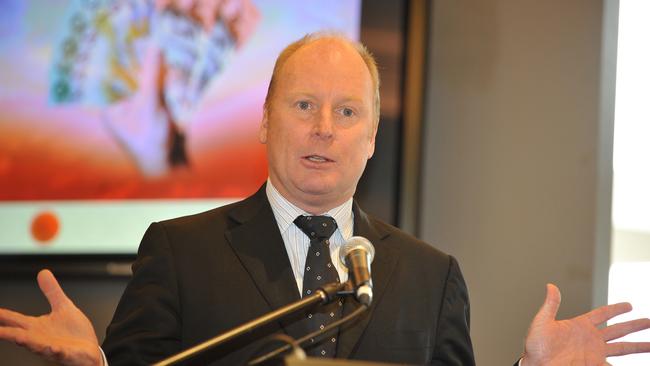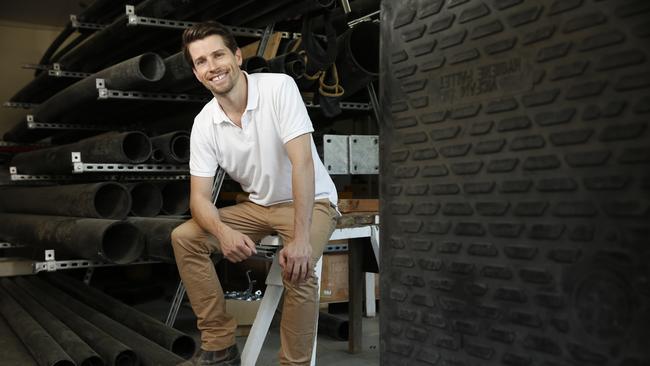When breaking up with family is hard to do
THE question of who should run a family firm when it’s time for the next generation is fraught, writes Ross Greenwood.

IT doesn’t matter if you are in a farm, a shop or a bookmaking business, one of the most difficult business negotiations is often with your family. Some kids might want to stay, others want to leave. Some want to cash in, others don’t. Some children are deemed competent, others are not. Some parents willingly share control and others hang on to their last.
But the conversation is always difficult. It has split many families apart. Grudges have lingered for generations.
You could be flippant and say that successful entrepreneurs should only have one child — to make the succession planning easier. But life doesn’t work that way. Besides, that one child may not want to follow in their parents’ steps. In plenty of cases, it is the less obvious child who has taken on a business and made it successful.
What is clear is that the conversation about business has to start early in a child’s life. If they are to inherit it they need to understand it. But, in the ideal circumstance the child will leave the family home and find their own way in the world. If the stars align they will find their own way back to the business and bring their acquired skills with them.
The worst scenarios (on farms as with business) is where a child is “expected” to work with the family but finds a dominant parent who shows little desire to change the business or to cede power to the next generation. In these cases the family relationship and the business will inevitably suffer, often under the stern hand of “the old man”.
Another tough situation is deciding between two or three children to inherit and run the company. In many cases there is not enough cash to pay out siblings. Occasionally (as with a farm) there can be enough assets to carve up the business between them. But that is rare.
In this case, no decision can be as disastrous as the wrong one. In many cases external advisers are brought in to help make the line call. But eventually the family has to make a realistic assessment on who is best equipped to survive now and into the future.
In other cases family members will remain in executive or non-executive roles while new external bosses come in to run the business. This might work for a while, but when there is conflict the majority shareholders will always have the upper hand.
For this reason a clear shareholders agreement or charter is an essential element of a family business. It should spell out the philosophy of the business and the way it is run, and controlled. This should be done with clear heads early in the business’s life, and then reviewed on a regular basis to make sure it keeps up with the business and the family.
The reason I make this point about families and business is that we are coming rapidly into Christmas, and this is our final column of the year. And while Christmas is traditionally a time of family, for those in family business, it is often a period of tension — especially if tough decisions have to be made or if the business is not travelling so well.
So be good to each other and make plans: for the good times and for the struggles.
A SAD JOURNEY TO A THRIVING FAMILY BUSINESS
A FAMILY tragedy led Matthew Klintfalt into his family’s business. In 2006 he was studying in Stockholm when he received the news his mother, Carol, had been diagnosed with the asbestos-related disease mesothelioma.
He returned to Sydney but could not return to university immediately because he had taken leave of absence, so he joined his father Bertil in his one-man business.
Bertil, as Matthew describes him, is a savvy engineering type. But not a salesman. So his business — a revolutionary Swedish form of draining rainwater from roofs quickly — was puttering along.

The Syphonics system has water pipes kept full of water and — like a siphon — water can be cleared from large roof spaces quickly. The added advantage is it does not require anywhere near the number of downpipes as traditional drainage, so it improves the aesthetics of buildings.
“You can have the best product but no-one will ever know about it unless you start marketing,” he says. That strategy — plus a deliberate effort to make personal contacts with their prospective clients — gradually saw the one-man operation grow. Tragically, as the business flourished, Carol’s conditioned worsened and she died just three weeks ago.
“Mum was the reason I helped dad in Ultraflow ... and all of the good things that go with it. I now go to work with my best mate.”
Ultraflow now has 13 staff and designs and manufactures key parts in Minto and in Warriewood. The business has completed the biggest project of its type in the southern hemisphere: the Tongsley TAFE in South Australia which has converted Mitsubishi’s old manufacturing plant.
Through all this, Matthew has not forgotten how he came to join the business. He has started a foundation called Fight to Breathe, to raise awareness about asbestos related illness. The fundraising effort included a 2-3 week climb of the Argentinian mountain Aconcagua.




